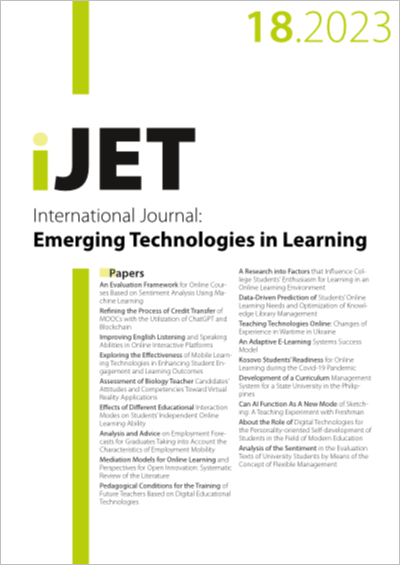An Adaptive E-Learning Systems Success Model
DOI:
https://doi.org/10.3991/ijet.v18i18.42929Keywords:
E-Learning, E-Learning System, E-Learning Models, E-Learning Methods, Pedagogical ApproachesAbstract
E-learning implementation is growing alongside the e-learning market’s growth. As a result, competing models and approaches were proposed to improve e-learning and learner performance; one of these models is the e-learning systems success model. In order to expand this model, an analysis of the published e-learning models and frameworks in the period 2017–2022 was conducted using the aggregative review method. 37 studies that match the current study interests have been selected and analyzed. The main results support the e-learning system success model. In addition to further constructs other than those used in the model that have been used to enhance it, an adaptive e-learning success model has been proposed, which integrates the e-learning success model with the other models and frameworks proposed in the literature. This study recommends that achieving e-learning success requires an analysis of the internal and external environment and crafting an adaptation plan to determine the e-learning methods depending on the pedagogical approaches and tutors’ and learners’ abilities and characteristics, which in turn determine the instructional material required and assessment methods, besides the required ICT. Besides the required enhancements, such as tutor and learner training, as well as the institution’s policy and e-learning management, in addition to the required adaptations to cope with environmental factors in order to embrace learners in education policies and future strategies.
Downloads
Published
How to Cite
Issue
Section
License
Copyright (c) 2023 Ismail M. Romi

This work is licensed under a Creative Commons Attribution 4.0 International License.



